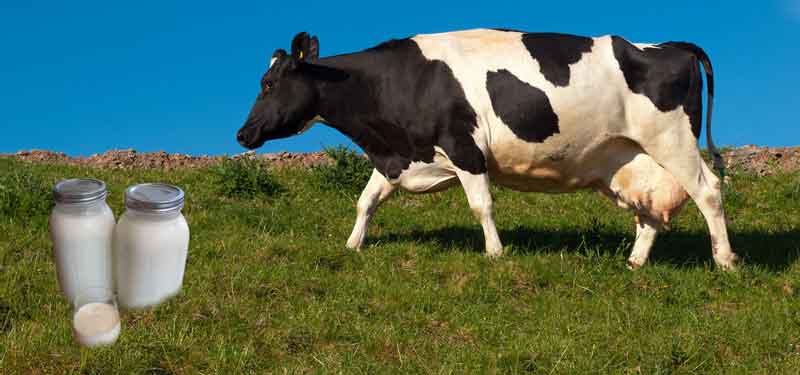A few years ago, I found the 1910 census listing for my mother’s family. She hadn’t been born yet, but her parents and oldest brother and sister lived with my maternal great-grandparents in Tiverton, R.I.
Though much of this town, located on the beautiful Mount Hope Bay, is scenic, the north end, where my family lived, was at the edge of the mill city of Fall River, Mass., a neighborhood of working-class homes packed closely together.
I was not surprised to see that my grandfather and two great-uncles (also living in the house) were employed at the cotton mill a mile or so away. But, strangely, my great-grandfather was listed as a milkman.
I briefly envisioned him driving a cart with the Hood logo emblazoned on the side, but surely that would have been part of our family lore, just as stories of my paternal grandfather’s days with the Nabisco cookie company were. When I asked my mother to explain, she said, “He had a cow. He sold the milk.”
Manuel Cabral Souza died before I was born, but I treasure that image of him with his urban cow and his cottage industry, as well as his right to sell milk right out of his backyard.
Every week, when I pick up my half-gallon of raw milk at the Farmer’s Market at Mill Park in Augusta, I think about Manny, and my own special right — to drink this controversial substance.
Only 10 states permit retail sales of unpasteurized milk. Others allow it to be sold only straight from farms, while 11 states ban it outright. Though I don’t think of myself as a libertarian, this is one area where I think government should butt out.
All manner of junk can be hawked in supermarkets, fast-food joints and convenience stores, pink slime can be added to beef, food can be secretly irradiated — but Americans need to be protected from milk straight from a cow’s teat? Really?
I am glad I live here in Maine, where the powers that be trust me to make up my own mind, as long as I know what I’m buying. That is, raw milk labeled as such.
Once, I thought pasteurization — heating milk to kill any pathogens in it — was a good thing. I loved milk as a child, even preferring it to Coke and Sprite. When I learned about Louis Pasteur, he became one of my heroes. After all, polio had not been fully eradicated, and if swimming in a neighbor’s pool could paralyze me for life (so I believed), milk could kill me too. If it wasn’t pasteurized, that is.
As I grew into adulthood, I grew less fond of milk. It didn’t seem to agree with me, digestively speaking. The non-fat-foods craze of the 1990s made me view whole milk as a witch’s brew, but I despised the taste of skim milk. I then joyfully discovered soy milk and used that on my cereal and in my tea.
About six years ago, I saw a vendor selling raw milk shakes at the Common Ground Fair.
I heard a bit about the advantages of not pasteurizing and wanted to try one. Raw milk is more nutritious because pasteurization kills good as well as bad bacteria. Historically, it was used as a healing food. Farmers who sell organic raw milk treat their cows humanely and pasture them. That’s important to me.
The farm women selling the shakes appeared to represent three generations of strong Nordic stock. Obviously, raw milk made them healthy. I bravely drank a milk shake.
It was delicious.
Still, when Sarah Smith came to sell organic raw milk (along with meat and veggies) at the farmers’ market in 2007, I wasn’t sure whether I wanted to make it part of my regular fare. Sarah and her husband, Garin, own Grassland Farms in Skowhegan. I was a regular customer of her organic tomatoes, garlic and, especially, carrots, but I just didn’t drink much milk anymore.
Since I was still curious about raw milk, I researched it, and liked what I learned about its virtues. I wanted to support a raw-milk producer. Most of all, I wanted to drink milk again — milk from happy cows. My intuition told me that raw milk was going to taste better and placate my finicky digestive system.
I started with a pint, then graduated to a quart, and finally reached the half-gallon-per-week stage. In the winter, my husband Paul and I purchase a “share” (we pay in advance for a season of milk). I have no doubt when I buy my bottle from “my” farmer, Sarah, that I am getting good, healthy milk from happy, healthy cows. The milk is yummy, and I love the fact that it comes in glass bottles and there’s a layer of cream on top.
Mmmm … beats skim any day. And I just know I’ve made Manny proud.
Liz Soares welcomes e-mail at lsoares@gwi.net.
Copy the Story LinkSend questions/comments to the editors.



Success. Please wait for the page to reload. If the page does not reload within 5 seconds, please refresh the page.
Enter your email and password to access comments.
Hi, to comment on stories you must . This profile is in addition to your subscription and website login.
Already have a commenting profile? .
Invalid username/password.
Please check your email to confirm and complete your registration.
Only subscribers are eligible to post comments. Please subscribe or login first for digital access. Here’s why.
Use the form below to reset your password. When you've submitted your account email, we will send an email with a reset code.